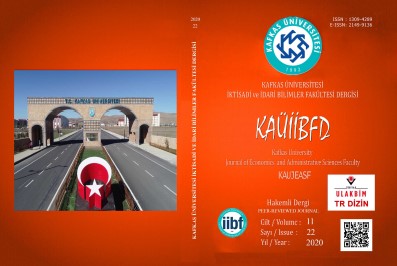ALEVİLİKTE MUHALİF DİL VE SÖYLEM: ALEVÎ TÜRKÜ VE DEYİŞLERİ ÜZERİNE BİR ANALİZ
DISSIDENT LANGUAGE AND SPEECH IN ALEVISM: AN ANALYSIS OF ALEVI FOLK SONG AND ITS PHRASES
Author(s): Adem Çaylak, Cansu KaymalSubject(s): Cultural history, Customs / Folklore, Islam studies, Philology, Theory of Literature
Published by: Kafkas Üniversitesi Sağlık, Kültür ve Spor Daire Başkanlığı Dijital Baskı Merkezi
Keywords: Alevism; Bektashism; opposition;
Summary/Abstract: Inspired by the Shia movement that defended the rights of the Ahl-al Beyt, Alevism had a political opposition identity as of its birth. Alevism has been seen as “fifth column”, “heterodox”, “heretic”, a “separatist “ religion sect and a “deviation” from the dominant religious understanding and practice by the Ahl-al Sunnah. The trauma created by these policies of marginalization, oppression and cruelty from history to the present day has nurtured a culture of introverted closure and hiding, an outward-looking resistence and opposition. The opposing identity formed was expressed in the folk songs, poems and phrases that are the reflection of the Alevis anthropological, sociological and culturel life styles. This article aims to reveal the formation of social and political opposition in Alevi political culture by analyzing the opposing language and discourse elements in Alevi poetry, phrases and folk songs. Literature review and discourse analysis methods are used in the article. With the literature review, oppositon of the Alevism belief and the Bektashi cult have been researched in a historical context. With the dicourse analysis the phrases of the poets who reveal the anthropological and sociological character of Alevism and comes from the “abdal tradition” such as Pir Sultan Abdal, Kaygusuz Abdal, Nesimi, Virani, Harabi, Yunus Emre etc. are examined, and the religious and political oppositon elements of rebellion in these saying were revealed.
Journal: Kafkas Üniversitesi İktisadi ve İdari Bilimler Fakültesi Dergisi
- Issue Year: 11/2020
- Issue No: 22
- Page Range: 1075-1106
- Page Count: 32
- Language: Turkish

